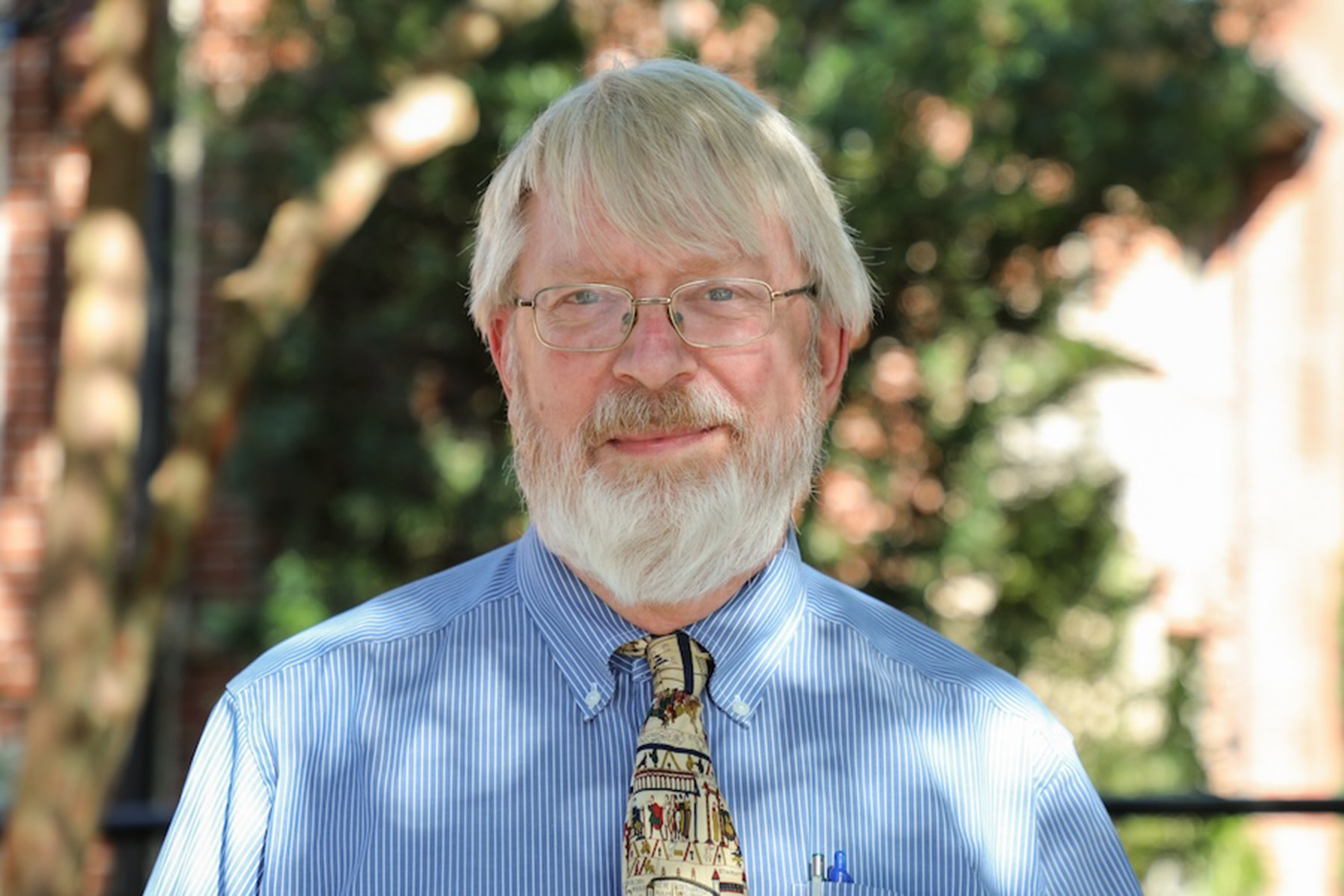
A Florida State University researcher will use a highly competitive fellowship from the world’s largest museum, education and research complex to complete an exploration of how national security concerns — during and after the Cold War — fundamentally shaped research in the earth sciences.
Associate Professor of History Ronald E. Doel received the Charles A. Lindbergh Chair in Aerospace History fellowship from the Smithsonian Institution’s National Air and Space Museum (NASM). The NASM is the preeminent American institution for commemorating flight while collecting, preserving and presenting the history, science and technology of aviation and space exploration. Since early August, Doel has been onsite at NASM in Washington, D.C., finishing his current book project, “Cold War Planet,” which covers the period between the end of World War II in 1945 through the dissolution of the Soviet Union in 1991.
The Charles A. Lindbergh Chair in Aerospace History is a competitive 12-month fellowship open to senior scholars with distinguished records of publication who are writing, or anticipate writing, books about aerospace history, broadly defined. This is the third time Doel has been selected for a fellowship with the institution — he held a predoctoral Guggenheim Fellowship from 1987 until 1989 and a postdoctoral fellowship from 1993 until 1995.
“Three decades later, I have the privilege of returning to the Smithsonian,” Doel said. “It is a premier research institution, and to be here is to be part of a community. I have greatly enjoyed meeting new colleagues and reconnecting with those I have not seen for a long time.”
Founded in 1846, the Smithsonian Institution is also home to the National Zoological Park and helps shape the future by preserving heritage, discovering new knowledge and sharing its resources with the world.
“As a creative scholar with a unique commitment to interdisciplinary research, Doel’s residence at the Smithsonian situates him at the center of global discussions on the history of science. This award speaks to peer recognition that he is the preeminent scholar in his field of Cold War-era science.”
—Jennifer Koslow, chair of the Department of History
“As a creative scholar with a unique commitment to interdisciplinary research, Doel’s residence at the Smithsonian situates him at the center of global discussions on the history of science,” said Jennifer Koslow, chair of the Department of History. “This award speaks to peer recognition that he is the preeminent scholar in his field of Cold War-era science.”
Following World War II, protecting the natural environment from pollution became a national priority, leading to hallmark legislation such as the National Environmental Policy Act in 1969 and the establishment of the U.S. Environmental Protection Agency in 1970. In the public consciousness and scholarship alike, however, there is a missing link between military interests and the type of environmental science research being conducted during the first decades of the Cold War. Doel intends for “Cold War Planet” to bridge this gap.
“Military leaders viewed the natural environment as a bounded, dynamic space through which new weapons — long-range bombers, guided missiles and submarines — would pass,” Doel said. “This perspective yielded much of the data that now constitutes our understanding of our planet’s physical environment.”
During the Cold War, a chasm emerged between the fields of ecology and physical earth sciences, with ecology largely becoming associated with environmental conservation and anti-pollution legislation. Physical earth sciences disciplines —including oceanography, geology and meteorology — emerged as heavily funded strategic areas of research as the U.S. military sought advantage over the Soviet Union through a better understanding of Earth’s physical properties. According to Doel, trust in both ecology and physical earth science experts eroded once climate change became a politically controversial issue, making it particularly important to study lesser-known aspects of science history and the political influences that shaped its origins in the U.S.
“This book is the pinnacle of my research,” Doel said. “The stories we tell about contemporary environmental knowledge will remain disturbingly incomplete if we fail to appreciate how national security requirements shaped fundamental questions asked about our planetary home.”
Doel earned his doctorate in history from Princeton University in 1990 and joined the FSU Department of History in 2008. Two years later, he also joined the College of Social Sciences and Public Policy’s Department of Geography as a faculty associate. He received an FSU University Teaching Award in 2016 and an FSU Outstanding Teaching in the Major Award in 2023.
Learn more about Doel’s research and the FSU Department of History at history.fsu.edu.



